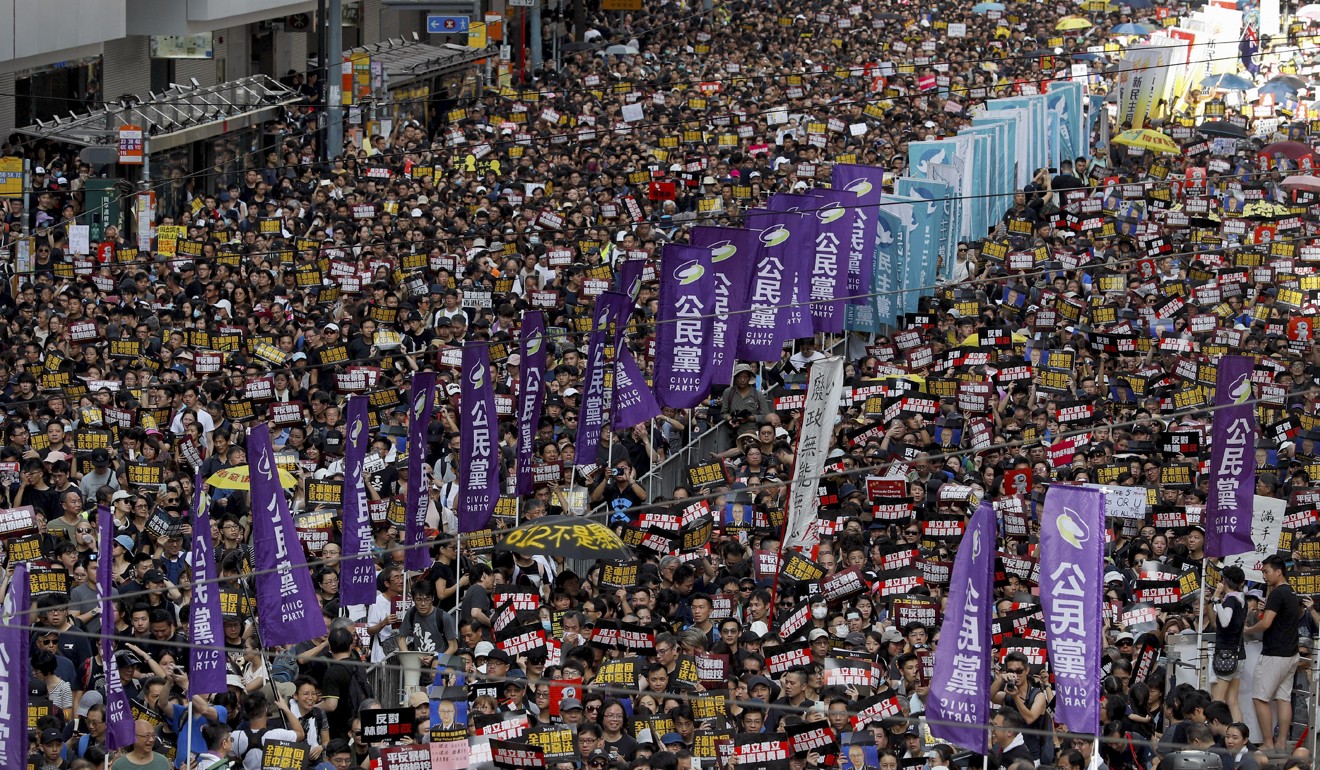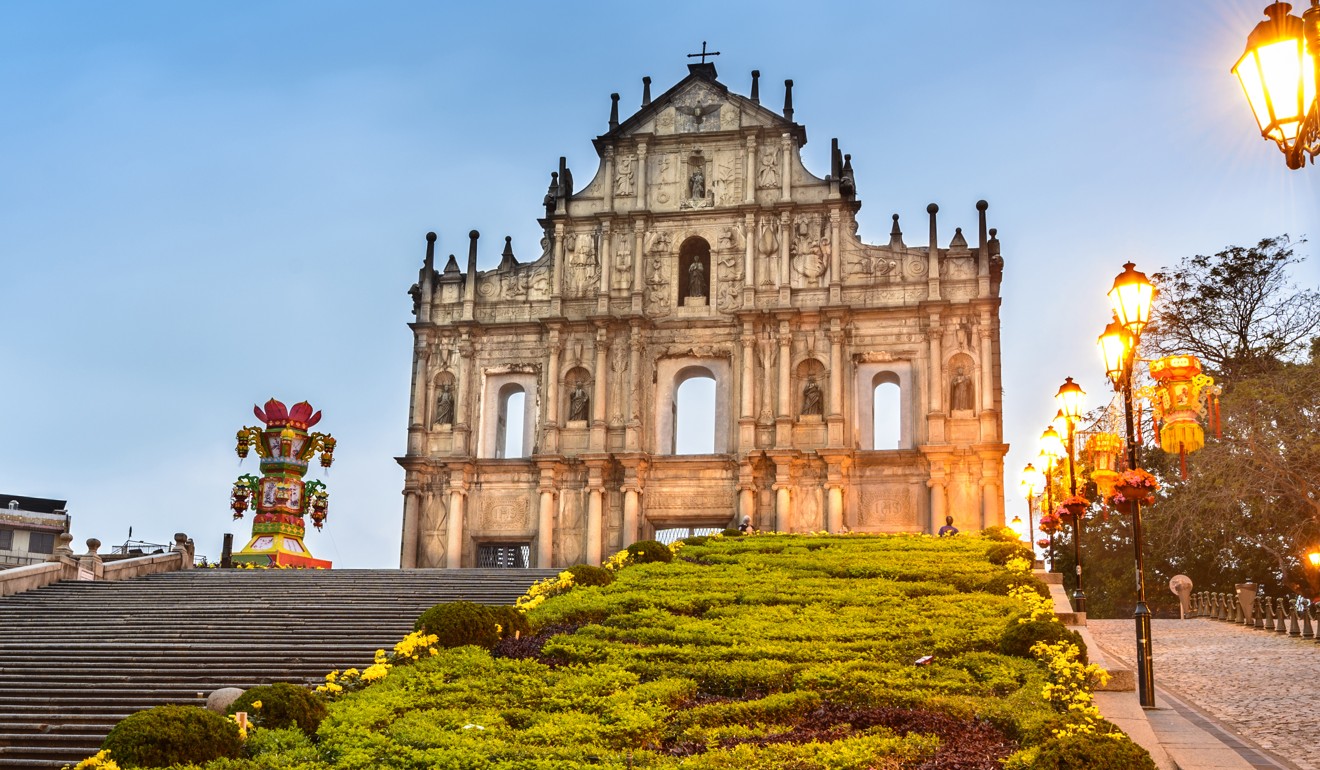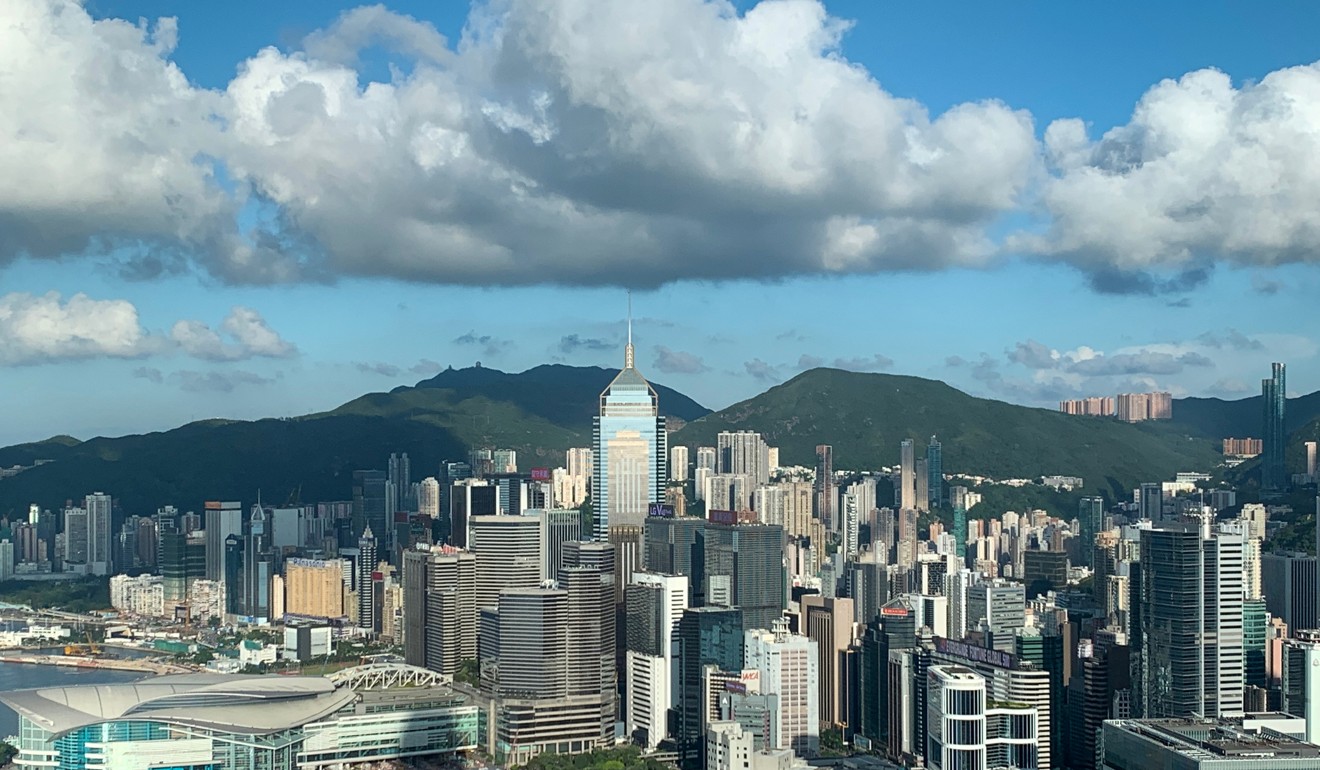Why Macau has been spared from the political turmoil now gripping Hong Kong
- Macau residents have fully embraced ‘one country, two systems’ and its economy is doing better than Hong Kong’s

Why has Macau, a former colony like Hong Kong and just an hour’s ferry ride away, been spared the political turmoil that is now threatening to tear the latter apart?
This must be one of the questions asked by the many Singaporeans and other observers who have been watching in sorrow the sad spectacle of a once-vibrant Hong Kong writhing helplessly as it spirals towards what seems like mass political suicide in slow motion.
Three reasons come to mind. The first is that there is an ideological fault line in Hong Kong with pro- and anti-China forces so implacably opposed to each other that a head-on collision seems inevitable – and the inevitable has just happened.
What boggles the mind is that today, more than two decades after Hong Kong returned to Chinese sovereignty under the “one country, two systems” formula that allows it to continue its way of life for 50 years, many in the territory still cannot come to terms with the fact that ultimately, it is Beijing that calls the shots.
This mindset is especially pronounced among members of the better educated, largely Westernised upper and middle classes. Many of them cannot countenance having to live under communist rule by 2047.
In some extreme cases, this sense of foreboding has morphed into an outright rejection of the reality that Hong Kong was, is and always will be part of China. Hence the emergence of voices calling for independence.
How sizeable a proportion these people are of Hong Kong’s population of 7.5 million is open to conjecture.
But they are there, and their voice is a lot louder than those who seem resigned to their fate, and are thus not openly antagonistic towards Beijing, or who have come to realise that any action that the central government construes as an attempt to break away will only hasten the very integration they fear.
Given this undercurrent, it is hardly surprising that any perceived change to the status quo, even if it is manifestly in Hong Kong’s interest, will be seen as a threat to “one country, two systems”, a stealthy erosion of freedom.
And from there a deliberate campaign can be mounted to challenge the authority and perhaps even the legitimacy of the Hong Kong government as a proxy for Beijing.

This is exactly what Carrie Lam’s administration ran into when it tried to do the right thing for Hong Kong and introduce the extradition bill to fulfil its international obligations.
As best as I can determine, there does not seem to be such an ideological chasm in Macau. Like Hong Kong, the territory has been granted autonomy by Beijing under the same “one country, two systems” formula since its return to Chinese sovereignty on December 20, 1999. Today its 623,000 people show scant signs of antipathy towards Beijing.
No doubt self-appointed Western campaigners for freedom and democracy who would like to fight Beijing to the last Chinese standing will deride Macau residents for being submissive, spineless or worse.
But who are they to cast aspersions against a people who, it can be argued, have chosen to accept that Macau had been a part of China until the Portuguese came in 1557 and will remain so! People of Macau recognise that geography is destiny, even if some or many in Hong Kong refuse to.
Macau residents have worked out a modus vivendi with Beijing. They do not harp only on two systems, as most in Hong Kong do, but embrace one country in word and deed as well.
They have no qualms about singing the Chinese national anthem and speaking Mandarin. They do not accept the tourist dollars of mainland visitors in one breath and in the very next, spit on them as locusts.

Over in Hong Kong, the people who resist coming to any form of accommodation with Chinese Communist Party rule have been vocal about that even before the return to Chinese sovereignty on July 1, 1997.
To any objective and dispassionate observer, they are in denial, suffering from what psychologists would call cognitive dissonance as they persist in believing, against all reason, that Hong Kong can somehow break away and become a separate entity.
It is their prerogative, of course, to hold on to their belief. But what they do can have an impact on political stability. It is clear that the actions of some of them have fuelled the present crisis.
To be sure, many thousands who want nothing to do with Beijing have packed their bags and emigrated though some have since returned for one reason or another. They have not made any fuss.
Those who stayed but have the means to leave have probably made provisions to do so just before 2047. Or even earlier if and when prospects darken.
There are yet others who chose to stay but have let the world know that they did so because they want to fight the good fight for freedom and democracy.
They have tapped into the latent feelings of apprehension about communist rule to stage protests for democracy and greater freedom, never mind that an electoral college system for political representation is in place, though it can be improved upon, and that the freedoms that Hong Kong residents already enjoy are the envy of people around the world.
They are within their right to expound their political views or stage peaceful protests for as long as they keep within the law.
This cannot be said of the lot among them who have resorted to barefaced lies, distortions, and means more foul than fair to incite violence and pose a direct challenge to the rule of law.
And it is the height of irresponsibility and immorality for these agitators to use young men and women who do not know any better as battering rams to charge police lines, break into government buildings and commit flagrant acts of vandalism, knowing full well that when justice catches up with the latter, their future may well be ruined for good.
The second contributory factor to the crisis in Hong Kong is economic. While ordinary wage earners in Macau reel under the weight of inordinately high property prices like their counterparts in Hong Kong, they still remain more optimistic about their future and do not have that sense of desperation driving those self-styled young martyrs in Hong Kong who feel they have nothing to lose by tearing down a system that has let them down.

Indeed, Macau residents have less reason to feel bitter or frustrated, if per capita GDP, not the best of indicators admittedly, is any gauge. According to International Monetary Fund figures, it was US$122,489 in 2017, the second highest in the world after Qatar’s US$128,702.
Hong Kong, at US$64,533, was placed 10th in the same table. Given that Macau’s GDP grew from US$50.36 billion in 2017 to US$54.56 billion last year, its per capita GDP last year should be higher rather than lower.
In sum, its economy is doing better than Hong Kong’s, which must make its people less discontented and vulnerable to manipulation by forces hostile to Beijing.
Finally, there can be no doubt that foreign interference has fanned the widespread unrest and mounting chaos in Hong Kong. Western governments have frequently expressed grave concern about the erosion of freedom in Hong Kong.
But there has hardly been a squeak about Macau. Why? Because Beijing has been scrupulous in observing “one country, two systems” in Macau but not in Hong Kong?
Or because the people in Macau do not need or deserve any support from them when it comes to safeguarding freedom or promoting democracy?
Should Hong Kong be thankful for the 50 or so statements issued by Western governments and political groups about its handling of the extradition bill and the street protests?
Or be grateful to the former American Consul General Kurt Tong, who said just before he left the post that Beijing was interfering with Hong Kong’s autonomy and that the prosecution of nine activists for their roles in the 2014 Occupy Central protests was “rather aggressive”?
Leaving aside the widespread suspicion of foreign funding of the street protests and rioters, which remains to be proven, there is plenty already on public record to leave no one in doubt that Hong Kong of late has received extraordinary attention from the West, particularly the Anglo-Saxon parts of the West.
Those who believe that this is because they really care about the teeming masses in Hong Kong will believe that Elvis is alive and rocking somewhere in Memphis, Tennessee.
All that “concern” has nothing to do with freedom and democracy, and everything to do with the desire to use Hong Kong in every which way to destabilise China and contain its rise.
Let me end with this anecdote for the edification of those who hankered for the good old colonial days.
In 1985, then British Foreign Secretary Douglas Hurd learned that Portugal, wanting to do the honourable thing by its subjects in Macau before returning sovereignty to China, was contemplating granting full Portuguese citizenship to all born there before November 20, 1981.
He immediately ordered his officials to pressure Lisbon to drop the idea. Reason? He did not want people in Hong Kong to demand similar treatment from Britain later on. To Portugal’s credit, it ignored London and went ahead to accord citizens’ rights to some 85,000 Macau residents who qualified.
Clearly British politicians like Chris Patten forgot this episode, or chose not to remember, when they waxed lyrical about their moral duty to look out for those in Hong Kong who yearned to live free.
Leslie Fong is a former editor of Singapore’s The Straits Times